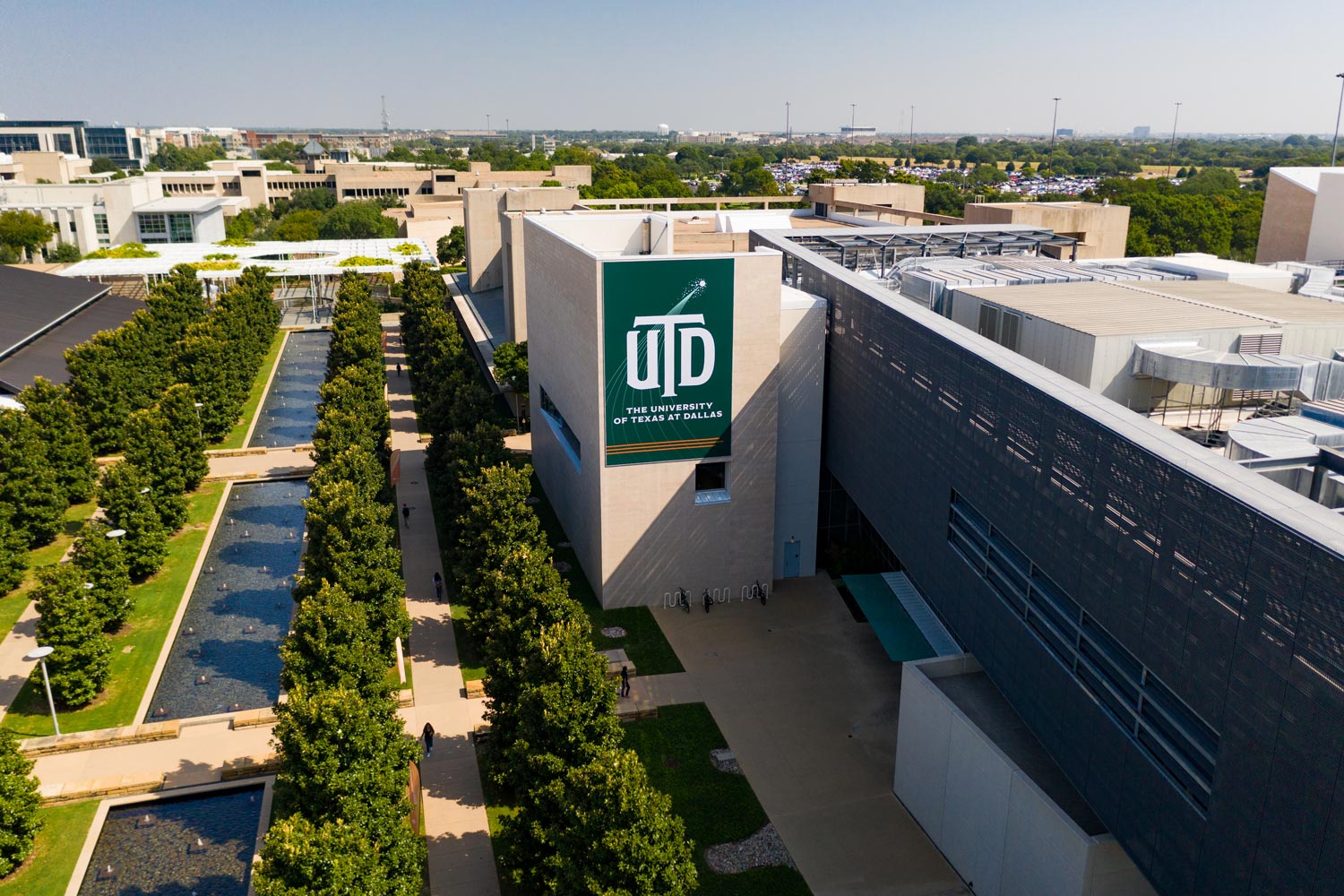Arts School Gets New Name with Bass Foundation’s $40 Million Gift
By: Office of Media Relations | May 9, 2023

The Harry W. Bass Jr. Foundation has made a $40 million gift to The University of Texas at Dallas to support the School of Arts, Humanities, and Technology (AHT). The landmark gift — which will name the school the Harry W. Bass Jr. School of Arts, Humanities, and Technology — will build upon the school’s dynamic foundation to create new and expanded opportunities for students, faculty and the broader community.

“Harry Bass Jr. was a multitasker of the first order — running an oil company, investing in a ski resort and fostering an interest in computer science, all the while committed to amassing an unparalleled collection of early U.S. gold coins,” said Doris Bass, president and trustee of the foundation. “He believed that to whom much has been given, much is required. This mentality, combined with his eye to the future, pushed Harry to garner resources that the foundation now uses to honor his legacy in significant ways.”
The foundation’s gift will fuel the Bass School’s priorities and generate new avenues for engagement and exploration. Students will benefit from additional scholarships and fellowships, as well as expanded immersive study experiences for both undergraduate and graduate students. Increased faculty support will help attract and retain innovative educators focused on advancing cross-disciplinary work throughout university centers, labs and studios.
“The impact of this gift cannot be overstated,” said Dr. Nils Roemer, Bass School dean and the Arts, Humanities, and Technology Distinguished University Chair. “It will strengthen the foundation of our scholarships, research and programming and change the trajectory of our school. It multiplies opportunities for students, faculty and communities to engage in essential experiences of arts, humanities and emerging technologies.”
Roemer said this gift will allow leadership to implement critical initiatives more comprehensively across the school and ensure that big ideas already in motion evolve into sustainable efforts embedded throughout the curriculum. He also sees the investment as a catalyst for things to come.
“The Bass School will be a place where students will continue to come in even larger numbers,” he said. “Faculty will want to teach here, and the community will want to be a part of this thriving new culture we’re creating here at UT Dallas.”

“The impact of this gift cannot be overstated. It will strengthen the foundation of our scholarships, research and programming and change the trajectory of our school. It multiplies opportunities for students, faculty and communities to engage in essential experiences of arts, humanities and emerging technologies.”
Dr. Nils Roemer, dean of the Harry W. Bass Jr. School of Arts, Humanities, and Technology
In 2022, the University announced the creation of AHT to enhance the arts on campus and establish a strong, single academic presence for the arts. The merger brought together the School of Arts and Humanities, one of the University’s oldest schools established in 1975, and the School of Arts, Technology, and Emerging Communication, the home of the first arts and technology degree in Texas.
“The convergence of arts, humanities and technology is one of the qualities that makes our institution uniquely UTD,” said UT Dallas President Richard C. Benson, the Eugene McDermott Distinguished University Chair of Leadership. “The Harry W. Bass Jr. Foundation’s exceptional generosity accelerates our efforts to cultivate the interdisciplinary approach that allows us to be innovators at the forefront of that intersection.”
A portion of the gift also provides critical funding to accelerate Phase II of the Edith and Peter O’Donnell Jr. Athenaeum, a new cultural district located on approximately 12 acres at the southeastern edge of the campus. Currently under construction, the first phase features a two-story space that will house a second location of the Crow Museum of Asian Art. The second phase includes a two-story, 53,000-square-foot performance venue with a 600-seat concert hall, choral and orchestra rehearsal rooms, classrooms and office space. It will become the home of arts students and Bass School music faculty.
“The convergence of arts, humanities and technology is one of the qualities that makes our institution uniquely UTD. The Harry W. Bass Jr. Foundation’s exceptional generosity accelerates our efforts to cultivate the interdisciplinary approach that allows us to be innovators at the forefront of that intersection.”
UT Dallas President Richard C. Benson
The Harry Bass Foundation was established by petroleum entrepreneur Harry W. Bass Sr. in 1945 to support Dallas charitable and religious organizations. After his father’s death, Harry Bass Jr. took over operations of the family foundation. He founded the Harry W. Bass Jr. Foundation in 1991 as an extension of his passion for numismatics, the study and collection of coins. In 2002, the two entities were merged to operate under the Harry W. Bass Jr. Foundation name.
“Harry truly believed in maintaining an educated mind,” said Doris Bass of her late husband. “What he lacked after only two years of formal education, Harry made up for with a sharp, inquiring mind, an amazing ability to concentrate on any task at hand and a dogged determination to educate himself on issues of interest.”
The foundation continues to align with Bass’ original mission, funding local education, arts, science, civic and human services initiatives. In recent years, the organization has supported other areas at UT Dallas, including the Edith O’Donnell Institute of Art History.
“One of the most monumental philanthropic contributions to the University to date, this gift from the Harry W. Bass Jr. Foundation demonstrates the community’s continued investment in UT Dallas’ evolution into a premier comprehensive public university,” said Kyle Edgington PhD’13, vice president for development and alumni relations at UTD. “The impact of this generosity will resonate beyond campus for generations to come.”
The gift also supports UT Dallas’ ongoing New Dimensions: The Campaign for UT Dallas, which aims to raise $750 million for transformative opportunities for students, research and the arts on campus.
A campus celebration for the newly named school is planned for the fall.
Media Contact: The Office of Communications and Marketing, or the Office of Media Relations, UT Dallas, (972) 883-2155, newscenter@utdallas.edu.





